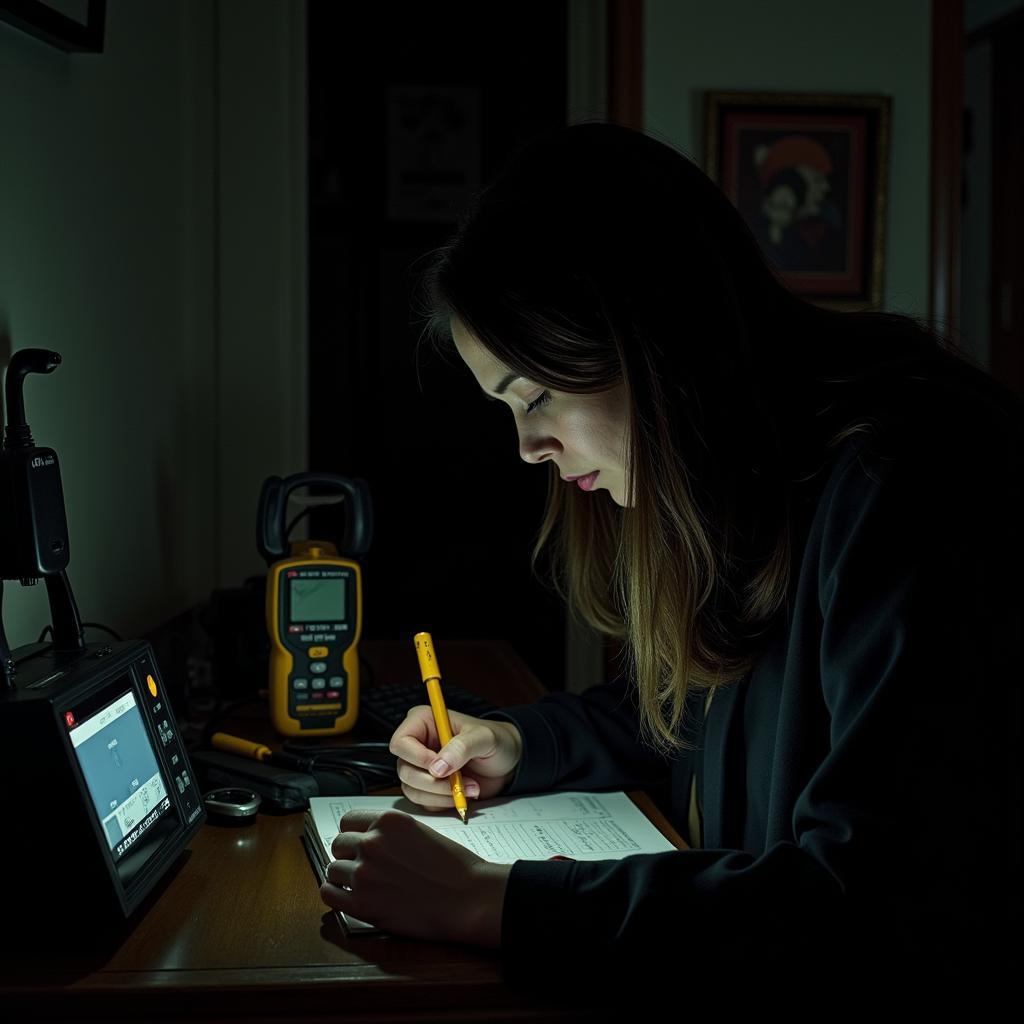Inductive Research Method Definition involves starting with specific observations and moving towards broader generalizations and theories. Unlike deductive reasoning, which starts with a theory and tests it against data, inductive research builds theories from the ground up. This approach is crucial in fields like paranormal investigation where established theories are often lacking. Let’s explore this fascinating research method in more detail. what is inductive research
Understanding the Inductive Research Method
The inductive research approach is all about exploring the unknown. It’s like piecing together a puzzle without having the picture on the box. You start with individual pieces (observations) and try to figure out how they fit together to form the bigger picture (theory). This method is particularly useful when exploring new phenomena or challenging existing assumptions. This method allows researchers to remain open to new possibilities and unexpected discoveries. Imagine investigating a haunted house; you wouldn’t go in with a predetermined theory. Instead, you’d gather evidence – sounds, sights, temperature changes – and then form conclusions based on these specific observations.
When is Inductive Research Most Effective?
Inductive research shines when dealing with complex, multifaceted subjects, like those often encountered in Paranormal Research. It allows for flexibility and adaptation as new information emerges. For example, if you’re researching EVPs (electronic voice phenomena), you’d analyze numerous recordings, identifying patterns and commonalities, before developing a theory about their origins.
coding in qualitative research analysis
What are the Key Characteristics of Inductive Research?
- Data-driven: Inductive research prioritizes observations and data collection as the foundation for theory building.
- Exploratory: It’s ideal for investigating under-researched areas and generating new hypotheses.
- Iterative: The process is cyclical, involving repeated observations and refinement of theories.
- Grounded in reality: Theories emerge from real-world data, making them contextually relevant.
 Example of Inductive Research in Paranormal Investigation
Example of Inductive Research in Paranormal Investigation
Inductive vs. Deductive Research: Spotting the Difference
What’s the core difference between inductive and deductive research approaches? It lies in the direction of reasoning. Deductive reasoning starts with a general theory and works towards specific predictions, while inductive reasoning moves from specific observations to general conclusions. For example, a deductive approach to ghost hunting might start with the theory that ghosts are residual energy and then look for evidence to support that theory. An inductive approach would begin by collecting data in a supposedly haunted location and then forming a theory based on the observed phenomena.
deductive research approach definition
Applying Inductive Reasoning to Paranormal Investigations
Imagine investigating reports of a shadow figure in an old library. You would use an inductive approach by:
- Gathering data: Documenting sightings, collecting environmental readings, and interviewing witnesses.
- Identifying patterns: Looking for commonalities in witness accounts, recurring environmental anomalies, or historical connections.
- Developing a hypothesis: Based on the patterns identified, proposing a possible explanation for the shadow figure, whether it’s a natural phenomenon, a psychological effect, or something paranormal.
assumptions in research definition
Conclusion: Embracing the Power of Inductive Research
The inductive research method definition emphasizes its data-driven, exploratory nature. It’s a powerful tool for understanding complex phenomena, particularly in the realm of the paranormal, where definitive answers are often elusive. By embracing this method, researchers can build theories grounded in real-world observations, leading to a deeper understanding of the mysteries that surround us.
FAQ
- What is the main difference between inductive and deductive research?
- How can inductive research be applied to paranormal investigations?
- What are some examples of inductive research in other fields?
- What are the limitations of the inductive research method?
- What are the strengths of the inductive research method?
- Is inductive research qualitative or quantitative?
- How can I improve my inductive reasoning skills?
Need assistance with your research? Contact us at Phone Number: 0904826292, Email: research@gmail.com or visit our office at No. 31, Alley 142/7, P. Phú Viên, Bồ Đề, Long Biên, Hà Nội, Việt Nam. Our customer service team is available 24/7.